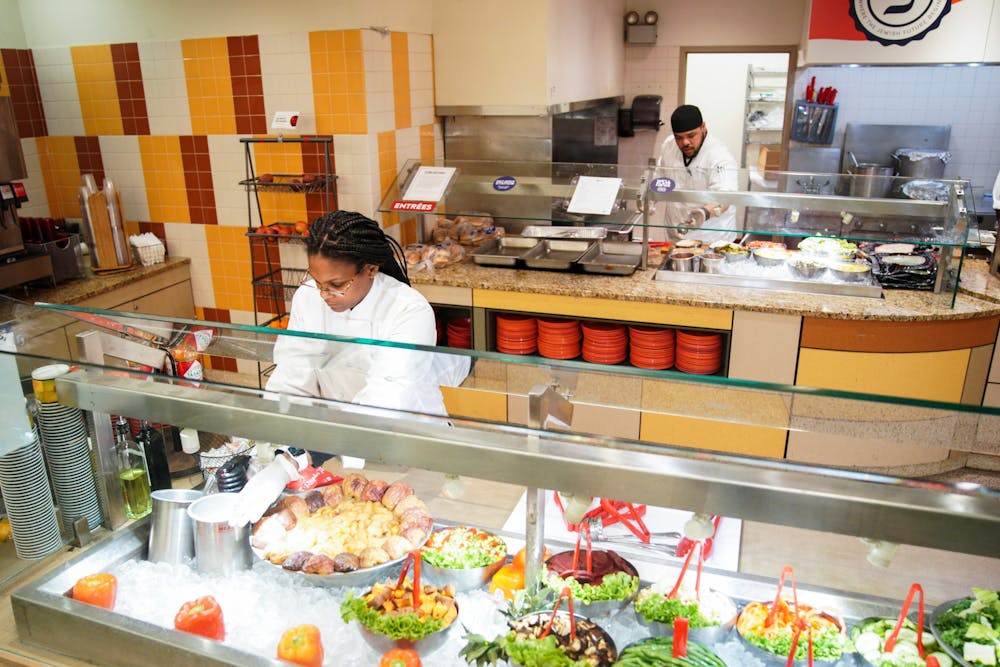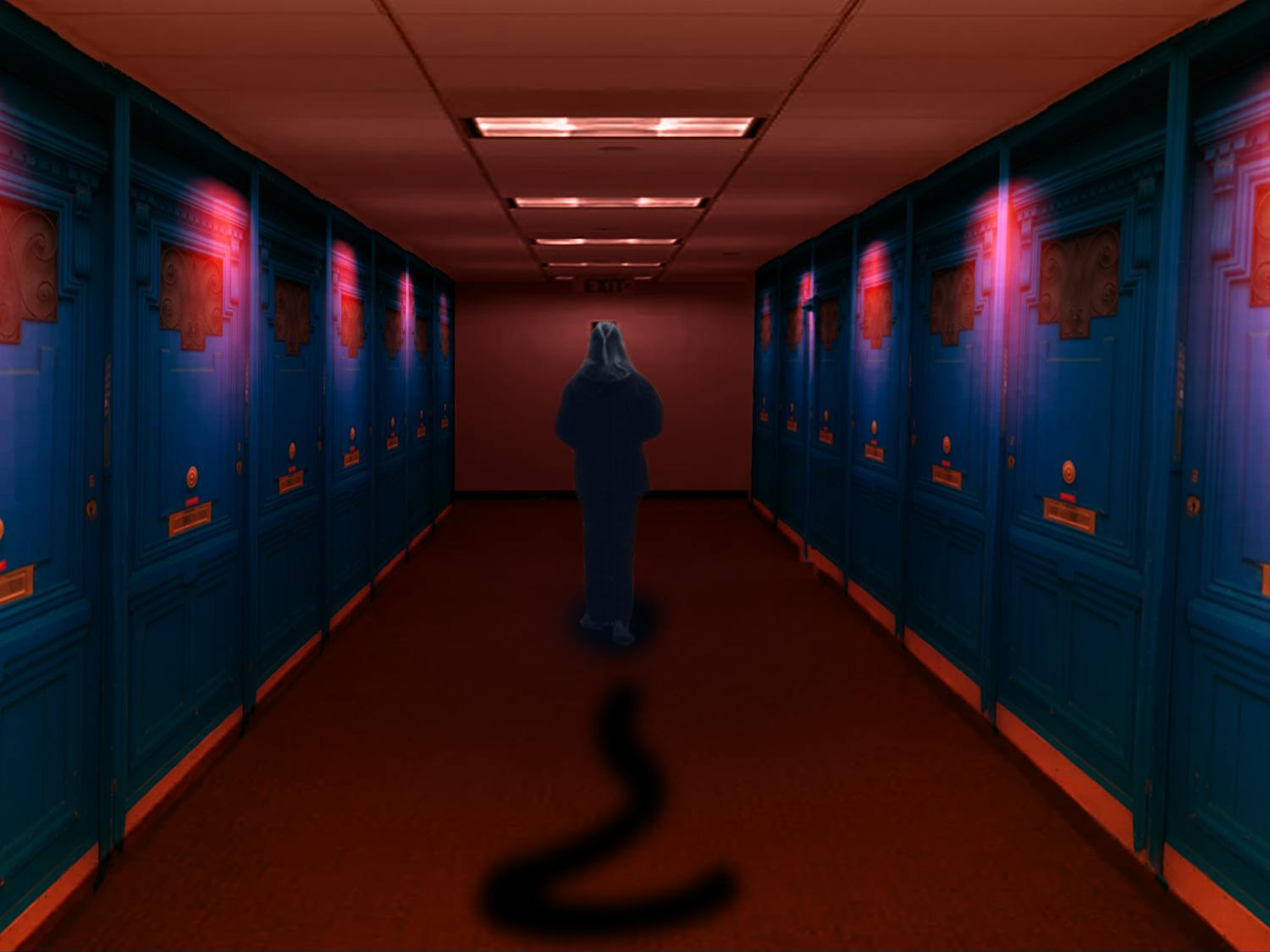A day on the University of Pennsylvania’s campus is remiss without visiting one of its most coveted eating-spots for students: the renowned Falk Dining Hall. Each visit, students enter the welcoming, familial environment and are met with compassion and kindness from the staff.
However, behind their smiles, Falk Dining workers – a marginalized group within the broader Penn Dining, already rife with inequality – face a much darker reality: poor benefits and no promotions after decades of service.
The culprit of their marginalization? Bon Appétit Management Company. Its accomplice? Penn.
Bon Appétit, a subsidiary of the multinational company Compass Group, provides contracted labor to Penn Dining. While workers in residential dining halls, such as Hill House and 1920 Commons, are employed by Penn, Falk Dining workers are not. As a result, the small team of nine receives less benefits and compensation under Bon Appétit. After 23 years of service to Hillel and Falk, Elijah Wingate and Troy Harris, two Kosher chefs, have shared their story with the hope of changing the way Falk Dining employees are contracted.
As avid Falk-goers, members of Black Wharton, and constituents of the broader Penn student body, we stand with the workers of Falk Dining and second their cries for equality and fair treatment. Most importantly, we condemn the University for its complicity in labor issues occurring on its own campus.
We believe that progress for the Black community at Penn is stalled by the injustices experienced by Falk staff. The University must make amends. The first step lies in converting Falk Dining staff from contractors to employees of the University.
Falk is more than a meal swipe. It is an environment that fosters community and belonging, demonstrated by the interpersonal relationships fostered between Falk workers, like Troy and Elijah, and the student body. Despite being an integral part of the Penn community, Falk is the black sheep of Penn Dining.
We believe the current system of contracting labor disregards the commitment and contributions of Falk Dining staff and subjects them to greater systemic injustices under Bon Appétit. At one point, Troy was forced to come back to work only one week after his son was shot. Another worker had a stroke while on the job and was left unemployed without health care or income after more than 20 years. The small team even risked their lives to keep Falk open during COVID, but did not receive essential pay.
The experiences of Falk Dining staff point to larger labor issues and racialized systems of injustice.
The discrepancies between the treatment of Penn and privately contracted employees exemplify a broader University-wide focus on profits that consequently result in a disregard for the welfare of its workers. Despite increased support of diversity, equity, and inclusion initiatives and underrepresented student groups and faculty, the University neglects the dilemmas and well-being of Black Falk workers.
Injustices against the nine workers are a threat to progress made to further advance the Black Penn community. These advancements may be in vain if Penn continuously fails to address and adhere to the needs of all Black people on this campus.
While these experiences occurred under the employment of Bon Appétit, we believe it is the responsibility of the University to ensure that the workers who wear Penn Dining across their chest and feed hundreds of Penn students each day are treated fairly. In light of Penn’s history of urban upheaval and gentrification, which has made it increasingly difficult for Falk workers to afford rent and high costs of living, there is also a moral imperative on the University to take responsibility for providing adequate wages and benefits.
The small team of nine is more than chefs, cashiers, and servers. They are catalysts for change and voices of inspiration within their communities. They do not seek disruption. Rather, they are working to overcome recurring cycles of financial and emotional hardship through social mobilization. Their drive for change does not stem from personal incentives, but a desire to transform the narrative for their families and future generations of Falk workers.
The wrongs perpetrated by the current Penn Dining system must be rectified. A thank you card does not suffice.
MASON MORIAL is a College junior studying philosophy, politics, and economics from South Orange, N.J.
MATTIAS HANCHARD is a College junior studying philosophy, politics, and economics from Baltimore.
SHELBY DUGAS is a Wharton senior studying finance and management from Dallas.









